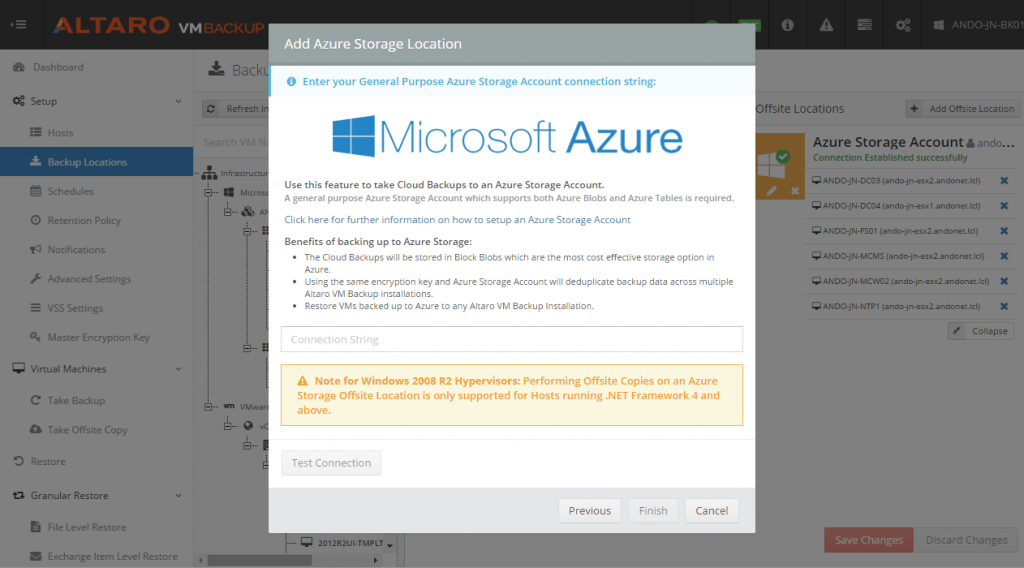Save to My DOJO
Table of contents
Update: Atlaro Backup Software now comes with full 24/7 support across all our products at no extra cost! Our support promise is to be available for all our customer needs round the clock, with a guaranteed 24/7 call response of less than 30 seconds direct to a product expert – no entry-level agents or passing you around. Find out more about our outstanding customer support
Update: Altaro Backup v8 has now been released – find out about the newest features
It’s been a big year for us here at Altaro Software so far already. We’ve had quite a number of improvements and feature adds into the product since the start of the year, and we’re not showing any sign of slowing down.
We’d like to introduce you to our latest, exciting feature addition, and it’s been one that customers have been asking about for some time. We’re proud to announce, that as of Altaro VM Backup 7.5, we now can send offsite backups directly to an Azure Storage Account!
Some of you will read that and say, “Haven’t we been able to do that before?”. While it’s true, we’ve had some customers who send their offsite backups into Azure, but in order to do that before our 7.5 release, a compute instance with our Altaro Offsite Server software running on it, has historically been needed inside of Azure. That entailed a running VM, page blob storage or Azure Files storage, an Azure Security Group, Azure WAN IPs, and potentially more. From the mere standpoint of needing a place to put your offsite backups, it was more complex than we cared for.
Now with version 7.5 all you need is the Azure Storage Account and the connection string associated with it. As shown below you simply setup the Storage Account, paste in the connection string into the Altaro VM Backup Console, and you’re connected!

Not only are you saving money by not having to incur the monthly cost of running a VM in Azure, you’re using more efficient and cost-effective storage via the storage account as well.
When using the Altaro Offsite server in Azure you had to use Azure Page Blobs, which means you are essentially storing your data in VHDs associated with a given VM. This method is more expensive than the Azure Block Blobs that our new storage account integration uses. Additionally, the old method has some size limitations as well. VHD size in Azure is limited to 1TB per VHD. Sure, you could stripe the data across multiple VHDs, but you needed larger VM sizes in order to do so which would incure even more cost! With our new storage account integration your only limitation is the 500TB size limitation on an Azure Storage Account, and if you fill that up, you simply make another one and go about your day!
One common question that we’ve gotten since releasing this feature to beta, is whether or not this feature can take advantage of our new Augmented Inline Deduplication technology we released earlier this year. The answer is yes! All data moving into an Azure Storage Account via our software, is first deduped before crossing the wire. This insures that only the data that absolutely needs to go across the WAN goes across the WAN. So, not only are you getting cost and data efficiency, you’re getting transfer efficiency as well! It’s a win-win!
Again, we love bringing you new and improved features within our backup software to better prepare you and your organization for the inevitable recovery situation, and it is our hope with this feature we’ve given you one more tool you can use to keep your data, and your company safe from data loss.
Interesting in trying Altaro VM Backup?
You can get more info on Altaro VM Backup and its features here and you can download a 30-day trial here!
As always, if you have questions, comments, or concerns, feel free to use the comments for below and we will be sure to address them!


Not a DOJO Member yet?
Join thousands of other IT pros and receive a weekly roundup email with the latest content & updates!





